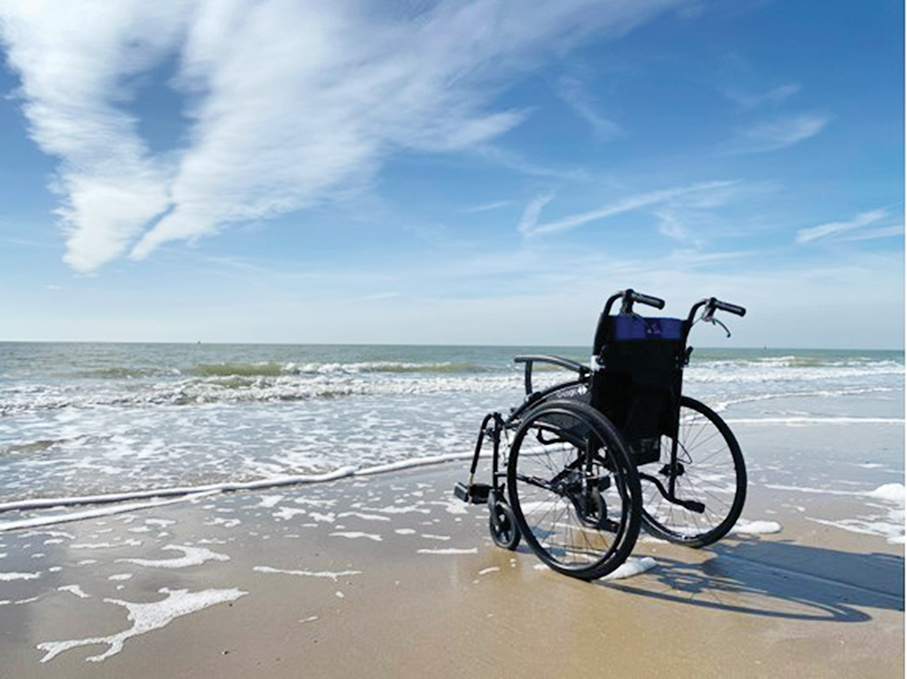If you were living a happy life and suddenly all that changed in a split second after an unexpected life-changing medical incident what would you do? Give up all hope or learn to deal with your new set of circumstances?
Jean-Dominiqu Bauby was a successful editor-in-chief of the French magazine Elle when he suddenly had a massive stroke at the age of 43 on December 8, 1995. The stroke left Bauby completely paralysed except for his left eye and a completely clear mind.
In “The Diving Bell and the Butterfly” (original French title: Le Scaphandre et le Papillon) Bauby describes his life in the hospital with locked-in-syndrome* and how he tried to overcome the limitations of his life. This book shows the victory of the human spirit over adversity.
Coming to terms with his new reality.
After having a rare kind of stroke to the brainstem, Bauby was in a coma for 20 days, and when he awoke he found that he could only move his left eye, that his mind was unimpaired and unusually for locked-in-syndrome (the diving bell) he could turn his head.
Bauby is certain that he will eventually be able to eat without a feeding tube and possibly be able to speak again.
Bauby devised a system with letters of the alphabet so that he could communicate with his family, friends and nurses, in which they would read out the letters and he would blink so that they could write it down, eventually forming sentences.
Although, Bauby was unable to regain his speech or eat properly, he imagined making and eating his favourite foods, meeting Empress Eugénie, wife of Napoléon III, the patroness of the hospital, when she visited in 1864. He identifies with Alexandre Dumas’ character from The Count of Monte Cristo, Noirtier de Villefort, who was also in a wheelchair and must blink to communicate. The freedom of his mind is the butterfly in the title.
Trips in the wheelchair
Bauby had two children, a son Théophile and daughter Céleste who would visit with his ex-wife Sylvie and they would go to the beach outside the hospital or trips to Paris where he would see the building where he used to work. The first time he wept, the second time he was indifferent as he realised that life went on regardless.
Because he heard that the people he used to work with were describing him as a vegetable he started to “write” a monthly letter so that people knew he was not a vegetable.
Once Bauby had mastered the alphabet method of getting his thoughts across he started to write “The Diving Bell and the Butterfly”, detailing his flights of fancy and the emotions that he felt as well as all the trials and tribulations of the medical procedures he had to endure.
Bauby died of pneumonia two days after the French publication of “The Diving Bell and the Butterfly” on March 6, 1997.
Reading this book takes you on a very emotional journey, the tears when realising the reality of Bauby’s plight and the laughter at the things he imagined or envisaged, but above all it teaches you not to give up when things seem hopeless.
Although, Bauby died he left behind a legacy of what it is like to suffer from locked-in-syndrome and how strong the human spirit is and the will to live. This book teaches you to never give up when all seems lost.
*According to the UK’s NHS website, locked-in syndrome has similar features to disorders of consciousness, but is considered and treated differently.
A person with locked-in syndrome is both conscious and aware, but completely paralysed and unable to speak.
They’re usually able to move their eyes and are sometimes able to communicate by blinking.

Photo courtesy of Unsplash








